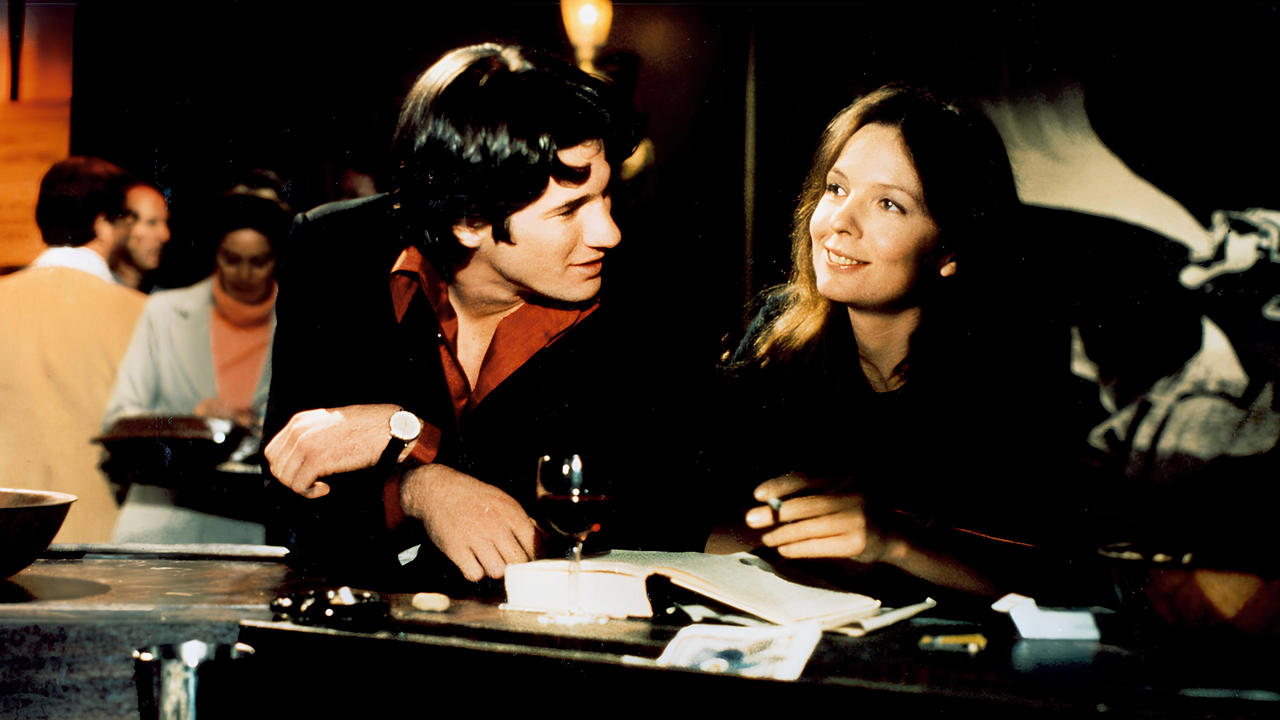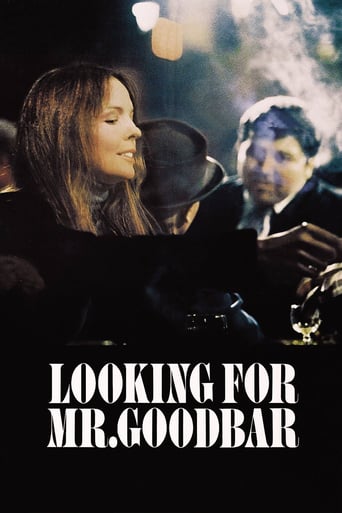

Diane Keaton is excellent, playing the protagonist Theresa Dunn, a teacher who loves having casual sex and taking drugs. She hooks up with a variety of men, some of them dangerous.This film is based on a novel about a real-life NYC teacher, Roseann Quinn.
... View MoreOdd, very scattered movie about a woman who goes down a road to ruin through random hook-ups, drugs, and encounters with violent men.Screenwriter/Director Richard Brooks has done very good work before ("In Cold Blood"). But, here, the narrative is all over the place. The film begins with Diane Keaton's character having waking fantasies, but they are awkwardly edited in. Brooks then has real problems in constructing the story throughout.There was a novel, and I have no idea if it had the same problems or not. Regardless, Brooks should have thought this out a lot better.Diane Keaton is fine in the lead. The acting otherwise ranges from seriously overcooked to passive-aggressive. The result of the writing and overacting leads to melodrama, where the movie could have told a much more interesting story.For instance, the guy playing Keaton's father is this borderline-psychotic Catholic character who is endlessly screaming and yelling at his daughters when they don't toe the line according to his hard-right religious ideals.A very odd disappointment that could, and should, have been a lot better.Plus, you can see what's going to happen by film's end coming a billion miles away!**** (4 Out of 10 Stars)
... View MoreExcellent film.SOME SPOILERS****** Dated because of the 70s coke & disco scene & women more newly experienced free sexuality, but still relevant. It's an emotional wallop of a film. I don't understand those who castigate it as a moralistic tale- it's the telling of a true story so this is non- fiction, people. This is mostly what happened. If you are a heroin addict, you might OD. If a woman takes home strangers, she may pay the consequence. Just fact, no fiction. And those who see it as a woman's punishment for her sexual freedom I think missed the boat here- Theresa THINKS she is being free to be herself by her going against everything her parents taught her, but in fact, she is just desperate, isolated and self- destructive. Deluding herself into believing that she is exercising individuality but embarking on a descent that's deeper and deeper with each humiliation, each meaningless, lonely night. Her work can't fulfill the void left by her physical and emotional scars. Just like her sister, she couldn't stand a man who actually really liked her or loved her. She needed rejection, humiliation, and abuse to validate her own feelings of not being worthy of it. She was not a strong heroine who used her sexuality for pleasure for herself and left a wake of men in the dust- she was the dust. The book is clearer on that than the movie. Keaton is spot on- can't imagine anyone else embodying the qualities of fragility and vulnerability yet making us feel contempt for her often at the same time. She's a top caliber actor. Everyone is wonderful in this film. And the ending- well, you just can't shake it. It's heart-stopping, literally. Berenger I believe said he had nightmares after himself. It is absolutely one of the most unforgettable endings in film. Leaves you slack- jawed in its horror.And the fact that its a true story, all the more.
... View MoreIt was searching for a copy of this that led me to a source of otherwise unavailable films but the lengthy running time has put me off watching it, for some time. Also, I cannot now remember what got me intrigued by the title anyway. In any event the thing is now watched. It seems to me there is a bit too much of everything here, certainly Richard Gere and Tuesday Weld who are well over the top. Keaton is fine but her character begins to irritate halfway through, what with all her neediness and simultaneously thrusting of people aside, her wonderfully virtuous deaf classes, adding nothing whatsoever and the growing tedium of the shadowy scenes of sex and drugs. Brave of Keaton to take the role but if only Brooks could have kept it to something more like 90 minutes we would surely have had a much more succinct and effective movie. Too many characters to little effect and too many downers and not enough uppers.
... View More